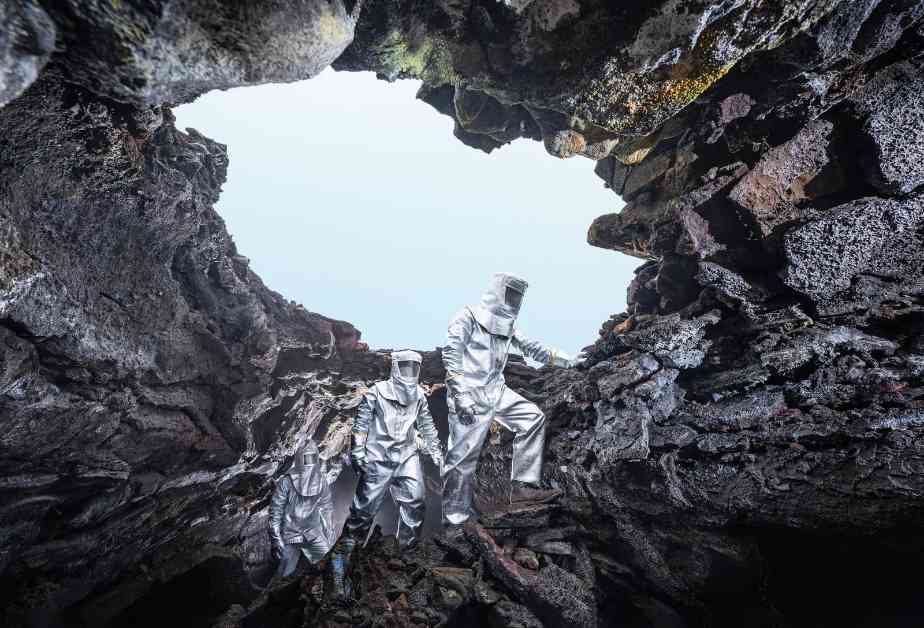Francesco Sauro’s fascination with caves began at a young age when he explored them with his father in the Lessini mountains in Italy. This childhood experience sparked a lifelong passion for cave exploration. As a geologist, Sauro has ventured into caves all over the world, discovering hidden worlds and unknown caves. One of his most recent explorations took him to lava tubes formed during the eruption of the Fagradalsfjall volcano in Iceland in 2021.
Lava tubes are unique caves formed by flowing lava that cools and leaves behind hollow cavities. These caves provide a rare opportunity to study newly formed caverns and observe the early stages of mineral formation and microbial colonization. Sauro and his team embarked on a journey to explore these lava tubes, equipped with thermal imaging cameras and protective suits to withstand the extreme temperatures inside the caves.
Their research focused on studying the minerals and microbial life present in these newly formed caves. They discovered rare minerals, some of which had never been seen before in mineralogy. These minerals offered insights into the processes of mineralization in extreme environments. Additionally, they observed the early colonization of bacteria in the caves, shedding light on how life can thrive in such harsh conditions.
The findings from Sauro’s expedition have implications beyond Earth. Studying lava tubes can provide valuable information for astrobiologists searching for signs of life on other planets. The colonization of microbial life in lava tubes could offer clues about the potential for life on Mars or other celestial bodies with volcanic activity.
Sauro’s work has garnered interest from the scientific community, including researchers from NASA and the European Space Agency. The exploration of lava tubes presents a unique opportunity to observe the origins of life in extreme environments and expand our understanding of microbial colonization. As Sauro continues his research into uncharted caves, the possibilities for new discoveries remain endless.






